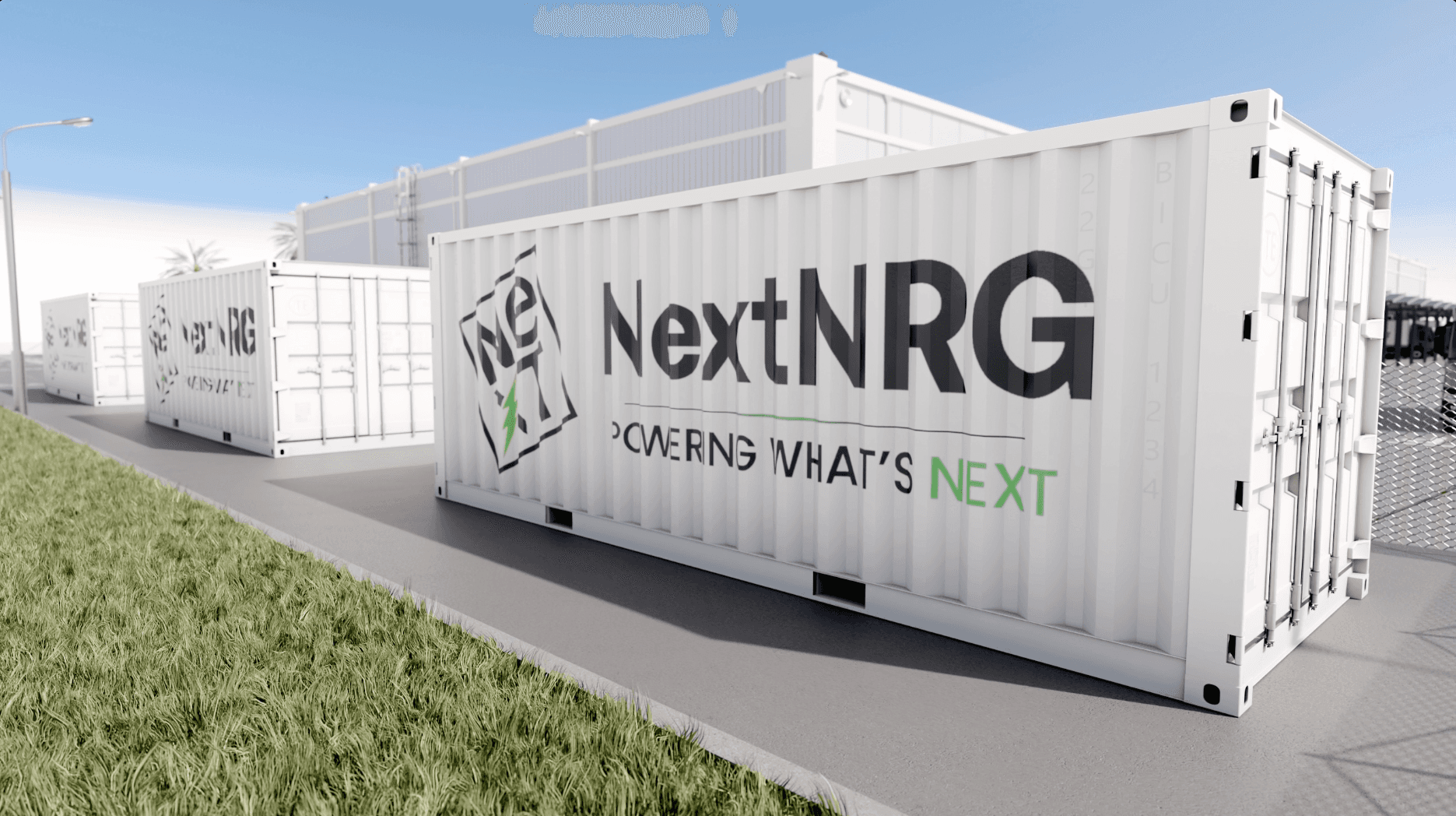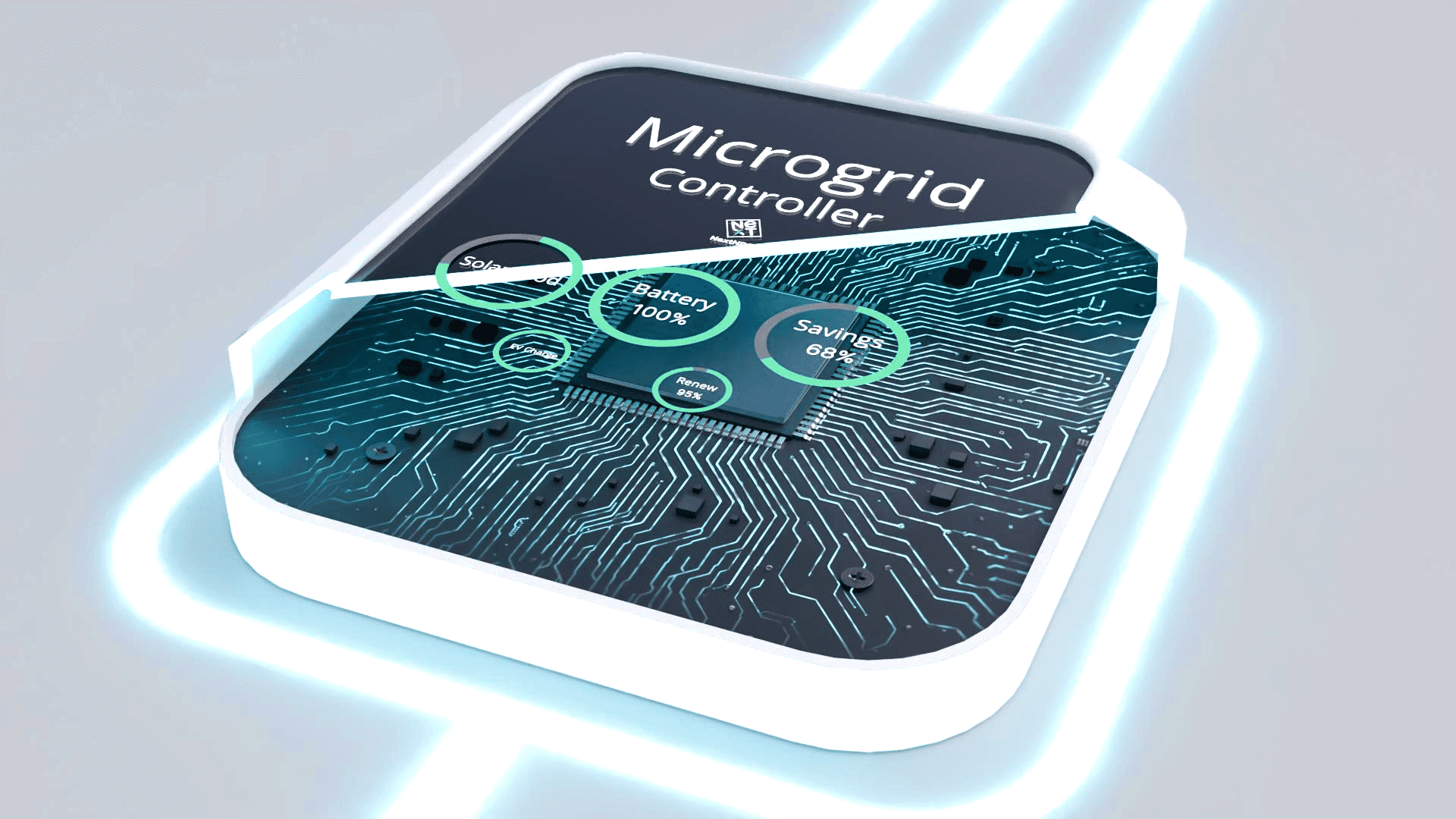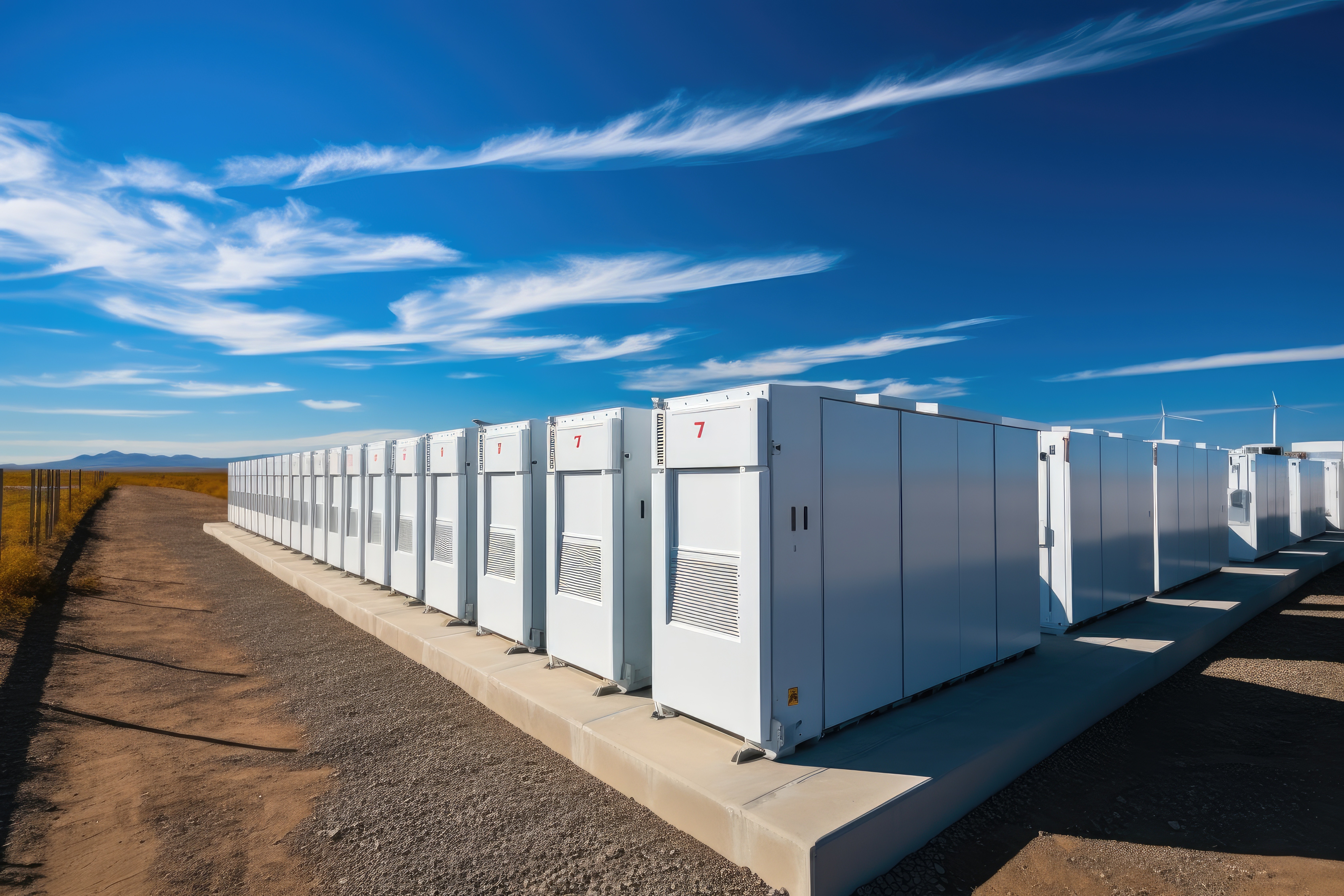
Jan 22, 2025
In today’s evolving energy landscape, many are looking for ways to enhance their setups and achieve energy independence. You can indeed use an AC plug and solar panel together, forming what is known as a hybrid system that effectively combines solar energy with traditional power sources. This integration allows you to utilize solar power when available and switch to grid electricity when necessary, optimizing your energy consumption.
Next NRG is leading the way in these technological advancements, providing solutions that enhance grid efficiency and resilience. With systems designed for energy management, you can harness the benefits of both AC power and solar energy, ensuring a reliable and secure electricity supply. This innovative approach not only offers flexibility but also empowers you to make strides towards sustainable energy usage.
By implementing a hybrid system, you position yourself at the forefront of energy innovation, opening the door to smarter energy management strategies. Embrace the potential that comes with combining diverse power sources and take control of your energy future.
Understanding Solar Power Systems
Solar power systems utilize various components to effectively harness and manage energy from the sun. Understanding these components and their functions helps you optimize the performance of your solar installation.
Components of a Solar Energy System
A typical solar energy system consists of several key components:
Solar Panels: These convert sunlight into electricity.
Inverter: This device changes the direct current (DC) from the solar panels into alternating current (AC), which is used by most household appliances.
Charge Controller: This regulates the voltage and current coming from the solar panels to avoid battery overcharging.
Batteries: These store excess energy for use when sunlight is not available.
Together, these elements work to create a reliable power source. For instance, using a high-quality solar panel from brands like Next NRG ensures efficient energy capture and conversion.
How Solar Panels Generate Electricity
Solar panels are made up of photovoltaic (PV) cells that absorb sunlight. When sunlight hits these cells, it excites electrons, generating direct current (DC) electricity.
The efficiency of this process can be affected by factors such as:
Angle and Orientation: Proper installation ensures optimal sunlight exposure.
Temperature: Higher temperatures can reduce efficiency; thus, cooler climates may yield better performance.
Shade: Even partial shading can significantly reduce output.
After generation, the DC electricity is sent to an inverter, converting it into AC electricity for your home.
The Role of Charge Controllers
Charge controllers play a critical role in solar power systems. They monitor and manage the flow of electricity from solar panels to batteries, ensuring optimal performance and longevity.
Two main types of charge controllers are prevalent:
PWM (Pulse Width Modulation): This is a simpler and typically less expensive option. It is effective but less efficient than MPPT.
MPPT (Maximum Power Point Tracking): This advanced technology maximizes power extraction from solar panels under varying conditions. It adjusts the electrical operating point of the modules.
Implementing an efficient solar charge controller is essential for enhancing system reliability. Next NRG’s technology integrates innovative solutions that optimize energy management across diverse power sources, ensuring your solar system operates at peak efficiency.
AC Plug Integration and Power Conversion
Integrating AC plugs with solar panels involves understanding inverters, how to connect to the AC grid, and ensuring safety and reliability. This knowledge will equip you with the essentials for managing power from diverse sources effectively.
Inverters in Solar Energy Systems
Inverters play a critical role in converting the direct current (DC) generated by solar panels into alternating current (AC), suitable for household appliances. You can choose between standard and hybrid inverters.
Hybrid inverters allow you to utilize both solar energy and the AC grid simultaneously. They can intelligently switch between power sources, providing a seamless energy experience. With a robust inverter, you ensure that your solar system efficiently integrates with the existing electrical framework.
Next NRG specializes in optimizing these inverter solutions, enhancing your energy management capabilities. This allows for better grid efficiency and resilience, ensuring that your power supply remains stable.
Connecting to the AC Grid
Connecting your solar setup to the AC grid involves a few key steps. First, ensure compliance with local electrical codes and standards. It's important to install a proper disconnect switch that allows you to isolate your solar system when necessary.
Using a qualified electrician for the installation is crucial. They can help connect your inverter to the AC grid, enabling you to draw from traditional power sources during low solar generation.
This hybrid approach ensures that you're never left without power. When the solar output is insufficient, you can rely on electricity from the AC grid and maintain a continuous power supply for your devices.
Safety and Reliability of AC Plugs
Ensuring the safety and reliability of your AC plug integration is essential. Always use high-quality components, including robust circuit breakers and correctly rated wire size, to handle potential overloads.
Regular inspections of your inverter and connections can prevent issues. Devices like Next NRG's Smart Microgrid technology enhance this reliability by integrating diverse power sources.
They offer predictive analytics for energy management, helping to monitor and optimize your system. With their advanced solutions, you maintain a reliable energy supply while minimizing safety risks.
Solar and AC Combined: The Hybrid Approach
Integrating solar energy with AC power through a hybrid energy system provides efficient energy management and adheres to modern energy demands. This approach optimizes energy outputs and reduces dependency on the grid while enhancing your overall energy resilience.
Defining Hybrid Energy Systems
A hybrid energy system combines multiple energy sources, such as solar panels and traditional AC power, to meet your electricity needs. These systems utilize hybrid inverters that allow for seamless switching between solar and grid power, optimizing efficiency. By incorporating battery energy storage, you can store excess solar energy for use during peak demand or when solar output is low.
With advanced technology, hybrid systems enhance performance and extend battery life, providing reliable energy output. Relevant technology, like those developed by Next NRG, supports integration of diverse power sources, ensuring efficient energy management for your home or business.
Advantages of Hybrid Systems
Hybrid systems deliver numerous advantages, including energy savings, reduced reliance on fossil fuels, and increased grid resilience. By integrating solar power with AC, you can lower electricity bills and minimize your carbon footprint. The ability to use stored energy during peak hours means you maximize efficiency and minimize costs.
Furthermore, hybrid systems allow for better load management, accommodating fluctuations in energy demand. This flexibility is vital for maintaining optimal performance, especially during power outages or emergencies. Brands like Next NRG leverage these advantages, enabling secure, reliable energy supply through smart microgrid technology.
Maintenance and Energy Savings
Effective maintenance of a hybrid energy system contributes to its longevity and efficiency. Regular checks on solar panels and battery systems can prevent performance issues and ensure peak operation. Simple tasks include cleaning panels, monitoring battery health, and inspecting electrical connections.
In terms of energy savings, hybrid systems can significantly reduce your reliance on grid power. By utilizing stored solar energy during high-demand periods, you lower electricity costs and improve your energy independence. Next NRG's innovative solutions in energy management further enhance savings through optimized usage and predictive analytics, ensuring precise and efficient energy supply management.
Energy Storage and Battery Management
Effective energy storage and management are crucial for optimizing the performance of solar panel systems and ensuring a reliable power supply. Understanding how battery systems work, how to regulate charging, and how to extend battery life will empower you to maximize the benefits of your solar installation.
Battery Storage in Solar Systems
Battery storage systems play a vital role in solar applications, enabling you to store excess energy generated during sunny periods for use when demand peaks or sunlight is unavailable. When using a solar charger, energy produced by your solar panels is channeled to charge the battery. Selecting the right capacity is important, as it directly influences your energy consumption and availability.
Common battery types include lithium-ion and lead-acid, each with specific advantages. Lithium-ion batteries, for example, offer higher efficiency and longer lifespans, making them a popular choice for solar systems. Utilize a charge controller to manage the flow of energy, ensuring your batteries are charged safely without overcharging, which can damage them.
Charge Regulation and Battery Voltage
Charge regulation is critical in maintaining the health of your battery storage system. A charge controller monitors the voltage and current flowing from solar panels to batteries, preventing overvoltage that can lead to reduced battery life. It's essential to use a controller designed for your battery type to avoid compatibility issues.
Understanding battery voltage levels is necessary for effective system management. Most solar batteries operate at nominal voltages of 12V, 24V, or 48V. Matching the system voltage with your appliances ensures optimal performance. Systems like the ones provided by Next NRG integrate advanced technology for efficient charge regulation, contributing to enhanced battery management for sustainable energy solutions.
Extending Battery Life and Efficiency
To extend your battery’s life and efficiency, several strategies can be employed. Regular maintenance, such as checking connections and cleaning terminals, prevents energy losses. Ensure your battery charger is capable of delivering the appropriate charging voltage, as a poorly matched charger can significantly reduce battery lifespan.
Incorporating a battery monitoring system also helps track performance metrics such as charge cycles and remaining capacity. By understanding your energy consumption patterns, you can optimize the use of stored energy, preventing deep discharges that can critically shorten battery life. Next NRG's solutions provide advanced monitoring features that enable you to manage battery health effectively while ensuring uninterrupted energy supply.
Environmental and Energy Policy Considerations
Integrating solar panels with AC plugs raises critical environmental and energy policy issues. Focusing on reducing your carbon footprint, enhancing energy security, and promoting renewable energy can lead to more sustainable living.
Reducing Carbon Footprint with Solar
By harnessing solar energy, you can significantly lower your household carbon emissions. Traditional energy generation methods, particularly fossil fuels, contribute heavily to greenhouse gas emissions. Using solar panels reduces dependency on these sources, leading to a cleaner energy mix.
Utilizing solar power in conjunction with AC technology can enhance your eco-friendly efforts. For instance, systems designed to work together can optimize energy consumption and further minimize carbon footprints. Next NRG’s integration of diverse power sources exemplifies this by providing reliable energy solutions that support sustainability.
Energy Security and Net Metering
Energy security is critical in maintaining stable electricity supply and pricing. By adopting solar panels, you empower yourself to generate your own energy, thus enhancing your independence from traditional grid systems.
Net metering policies facilitate this independence by allowing you to sell excess energy back to the grid. This arrangement not only provides financial incentives but also stabilizes energy availability during peak demand periods. Next NRG promotes optimized grid efficiency through their Smart Microgrid technology, ensuring your energy supply remains secure and resilient.
Promoting Renewable Energy and Eco-Friendliness
The transition to renewable energy fuels growth in eco-friendly practices. Solar energy serves as a cornerstone in this shift, driving innovations in energy management and usage.
By choosing solar and integrating it with AC power systems, you help establish a culture of sustainability. Next NRG is at the forefront of this movement, developing technologies like wireless EV charging and Smart Microgrids. These innovations not only enhance energy resilience but also support infrastructure sectors, promoting a reliable energy future while significantly reducing environmental impact.
Don’t Miss Out
Join our newsletter to get latest insights for your brand growth!





